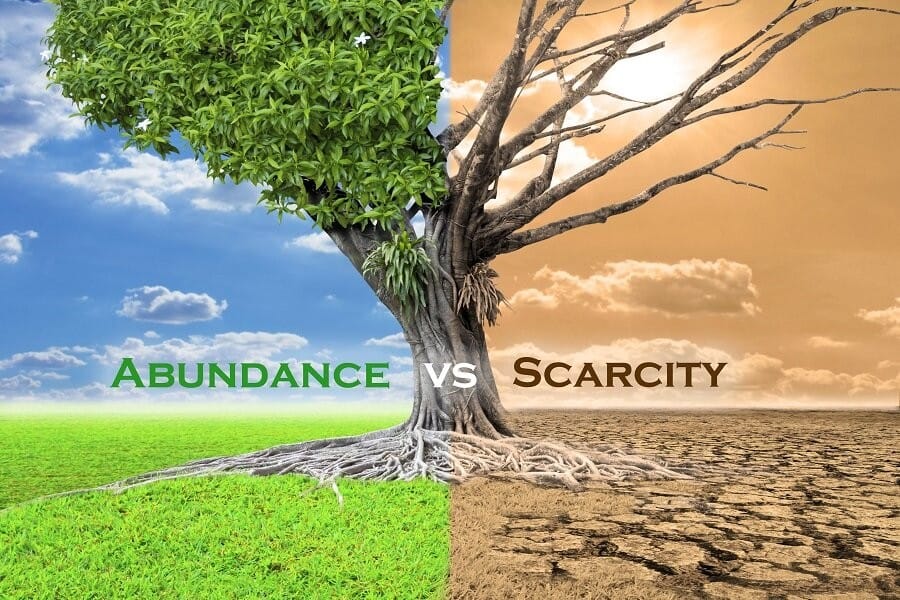One of Silicon Valley’s most powerful beliefs is the concept of an “abundance mindset”—the conviction that opportunities are limitless. If someone succeeds, it doesn’t mean there’s less left for the rest of us. Instead, success creates more opportunities for others. This mindset, ironically, aligns closely with Islamic teachings on rizq (provision), yet many in our community still operate with a scarcity mindset, one that limits growth, faith, and trust.
Allah as Al-Razzaq: The Infinite Provider
In Islam, Allah is Al-Razzaq, the ultimate Provider, and His provision is boundless. The Qur’an emphasizes this truth, reminding us that Allah’s sustenance reaches all creatures. In Surah Adh-Dhariyat (51:58), we’re told, “Indeed, it is Allah who is the [continual] Provider, the firm possessor of strength.” This isn’t just a comfort but a directive, underscoring that wealth and resources are blessings meant to be used responsibly and shared.
Yet, a scarcity mindset among Muslims reveals a limited understanding of Allah’s infinite capacity to provide. This approach assumes that another person’s success diminishes our own potential, leading to envy, isolation, and ultimately, stunted growth. The Prophet Muhammad (SAW) specifically warned against envy (hasad), saying, “Beware of envy, for envy consumes good deeds just as fire consumes wood” (Abu Dawood).
The Scarcity Mindset vs. the Abundance Mindset
The scarcity mindset is pervasive but fundamentally un-Islamic. When one of us achieves success, our response should be collaboration, not competition. Historically, the ummah thrived when wealth and resources were shared, as demonstrated by the waqf (charitable endowment) system—a brilliant example of community-oriented wealth distribution that benefited society at large.
The abundance mindset is an invitation to reclaim this legacy. Rizq, or provision, isn’t confined to wealth alone; it encompasses health, time, relationships, and knowledge. By recognizing Allah’s rizq as infinite, we transform others’ success into shared opportunity. This perspective fosters collaboration, shared knowledge, and a foundation for ethical and sustainable Islamic finance.
Practical Steps for Muslim Investors: Fostering Abundance
For Muslim investors, adopting an abundance mindset means shifting from fear to faith in action. Here’s how:
- Invest in Collective Growth
Focus on community-oriented ventures that support the ummah’s growth. When you invest in businesses with a mission to uplift others, you secure financial returns while contributing to societal betterment. - Mentorship and Knowledge Sharing
The Prophet Muhammad (SAW) taught, “The best of people are those who are most beneficial to people” (Al-Mu’jam Al-Awsat). Share knowledge and experiences to cultivate a culture of mutual benefit. Islamic finance, by design, discourages practices that benefit one party at the expense of another, instead promoting risk-sharing. - Celebrate and Support Others’ Success
Celebrating others’ achievements strengthens our bonds and reduces jealousy. Rather than competing, let’s uplift one another through partnerships that multiply our success and strengthen the community. - Engage in Ethical Partnerships
Seek collaborations that reflect Islamic ethics. When we work together, we amplify our impact and reaffirm our faith in Allah’s provision.
Reframing Wealth as a Test and Trusting in Allah’s Provision
Islam views wealth as a test: will we hoard it, or will we use it to benefit others? The scarcity mindset fails this test, driven by self-preservation and a lack of trust in Allah’s provision. By contrast, an abundance mindset cultivates tawakkul, or reliance on Allah’s plan. While we work hard and invest wisely, we ultimately trust that Allah’s provision is a constant.
In an authentic hadith, the Prophet (SAW) said, “If you were to rely upon Allah with reliance due to Him, then He would provide for you just as He provides for the birds. They go out in the morning with empty stomachs and come back full” (Tirmidhi). This balance—effort and trust—is the foundation of an abundant life.
Conclusion: Living the Abundance Mindset
Adopting an abundance mindset is more than a strategy; it’s an alignment of our ambitions with our faith. Allah’s infinite rizq isn’t just a comforting idea; it’s an empowering truth. For Muslim investors, it means recognizing that resources and opportunities are vast, given by Al-Razzaq. Embracing this mindset can transform our personal success and strengthen the entire ummah, setting a powerful example for others.
Let’s embody this mindset in our actions, showing the world that we are a community that trusts fully in Allah’s provision and works together for mutual prosperity and growth.


